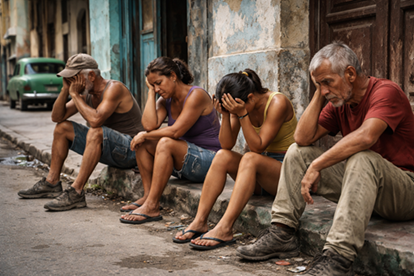Congratulations are in order for the Counter Terrorism and Organised Crime (CTOC) branch of the Jamaican police force who last week completed the arrest of 25 members of the Terrence gang accused of reigning terror on communities in St Catherine, Clarendon, St Andrew, St Mary, Trelawny, St Ann, and Manchester. There are reportedly other members of the gang who have been under police surveillance for several months and who, according to branch head, Assistant Commissioner Fitz Bailey, are expected to be nabbed soon. The spectacular outcome of this operation has been ascribed to some seven months of patient, intensive police investigation supported by highly placed attorneys from the Office of the Director of Public Prosecutions.
It is the surest sign yet that a method may have been found to put a dent in the murderous madness which has overtaken this country over the past four decades. And it was done without the help of ZOSA, NIDS or anti-gang legislation – confirming my long held view that what we need to put a lid on crime in Jamaica is not more laws or gimmicks but more police personnel, more diligent implementation of existing laws and a greater capacity for sustained social intervention.
Imagine the reprieve which law-abiding citizens of this country would experience if the ‘Terrence’ success could be repeated in another 50 or so of the 200 gangs said to be currently at large in the island. Appealing as this would be though, how prepared are we to deal with the additional strain which an additional 1,000 prisoners would visit on an already strained prison system?
In 2015 there was much talk of the deplorable conditions of our prisons. They were exposed as crammed, outdated, dilapidated hell holes, operating well below acceptable standards, with virtually no scope for rehabilitation. Many will recall the picture of three occupants, tossed together in a tiny space designed for one, with the only furnishing being a grill door, a slop bucket and sheets of newspaper for bedding. The message (now expediently laid to rest) was being increasingly transmitted that the need for a new maximum security prison had been around for a long time and had then become a matter of great urgency.
It was all set against the background of the great Great Britain £25M prison deal which was gift wrapped in frills and ribbons and pretty paper and hand-delivered by the then prime minister, Dave Cameron himself, to the Jamaican Parliament in September 2015. Public opinion then seemed equally split between acceptance and rejection of the offer and the then PNP Government dropped the issue to more intensely focus on an ongoing election campaign.
However, with the prospect of more Terrence-like hauls becoming the order of the day, the issue of prison accommodation is likely to resurface before long and pressure will again begin to mount for acceptance of the British offer to partly finance the construction of a new prison.
The present Government has so far turned its back on the offer and should continue so to do. Let us not forget the conditions attached to the deal. For a contribution of £25M representing 40% of the estimated cost of constructing a prison, the British Government would be transferring 300 of its prisoners to finish serving their sentences in Jamaica.
In a press conference on the issue, then Minister of National Security Peter Bunting revealed that the cost of maintaining a prisoner in the UK was £25,000 annually as against £6,000 locally. A transfer of 300 prisoners would therefore save the British Government £7.5M (J$1,252M) annually in maintenance expenses and allow for the recovery of its £25M ‘gift’ in less than four years.
Jamaica, on the other hand, would be left with an obligation to source £37.5M to cover the remaining construction costs, and an annual increase of at least £1.8M (J$300.6M) in its annual budgetary provision for prisoner maintenance costs for an indeterminate number of years. Was there any arrangement for the UK to contribute to these ongoing maintenance costs?
Had the deal gone through it would indeed have been a great accomplishment for Prime Minister Cameron, not unlike that of his ancestors who, a few centuries before, stopped over in West Africa and with the complicity of hoodwinked natives, accomplished a similar feat. It should be a source of much pain and shame for all of us that after 55 years of independence and almost 200 years since emancipation we are willing to look to the self-serving descendants of our ancestors’ oppressors to define for us a more humane form of penal justice.
But, when all is said and done, we still need a prison – and urgently. We must build it ourselves, and we can. We know where to go to find funding for similar sized projects when we so choose – like the US$68M National Identification System (NIDS), or a new Parliament building, or a single-use Trelawny stadium. It is always a question of priorities how public funds are employed, but in this case it is much more. It is the politics, the politics, the politics.
“This is the first administration,” declared former National Security Minister Bunting, “with the courage and commitment to address the issue” (Gleaner, October 2, 2015) referring to the UK prison negotiations and offer. Courage? What he could more clearly have said is, “This PNP Government, like the JLP before, has been afraid to build any new prison (however compelling the need) lest the predictable political backlash becomes too overwhelming an impediment to its chances for re-election”. Better to risk the social consequences of our maximum security prisons falling apart than face the slightest prospect of an election defeat.
The CTOC Branch is on to something good and needs support. The country needs more and better spaces for its ballooning prison population. It may not be as politically correct as building a school or a hospital but if we continue to hold our prisoners in crammed and grossly dehumanizing conditions all efforts at rehabilitation will be lost on them.
Upon their release, they will re-enter the society more brutish than before and the vicious circle will continue, threatening the existence of schools, hospitals and the general population. The Government needs to build another prison and build it now. Give healing a chance. Grant Fuhr Jersey



